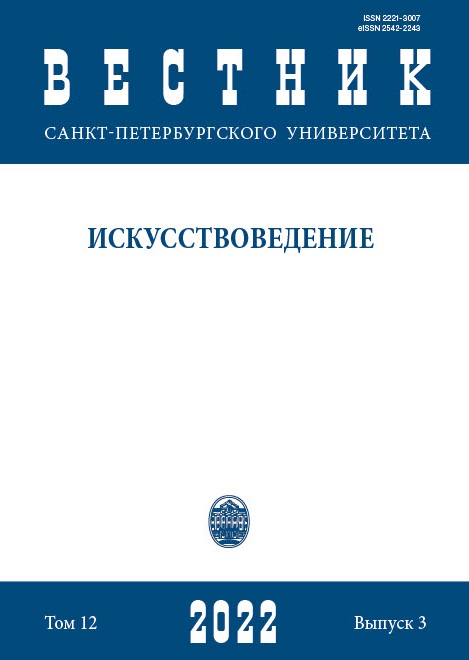Mimesis as a Universal Principle of the Form Making
DOI:
https://doi.org/10.21638/spbu15.2022.305Abstract
The stylistic method of revealing regularities, formed by the 19th century and dominating up until recently, proves to be ever less relevant to architectural and artistic processes of the Contemporary (Newest) times. To systemize the entire historical experience of architecture as a whole, more profound generalizations are required. An essential prerequisite for such generalizations appears to be the philosophical context of the paradigm shift: tradition — modernity — postmodernity. Without a clear understanding of all the differences between these paradigms, it is impossible to talk about the processes taking place in the architecture of the Contemporary times. The fundamental rejection of semantic binary oppositions (good/bad, beautiful/ugly, high/low, sacred/secular, etc.), typical for postmodernism, has entailed the issue of criteria for the value of art works, and consequently the criteria for art at large. The aim of this work is to demonstrate that the mimetic principle underlies the totality of the valuable qualities inherent in traditional architecture. And that, on the contrary, a gradual departure and subsequent factual rejection of this principle became one of the main reasons for both the emergence of the modern architecture phenomenon and its present crisis. The panoramic, holistic view of architectural development combined with the philosophical context of paradigmatic shift, allows not only to see the logic in the tortuous paths of the form making, but also gives the basis to build a system of universal criteria for architectural analysis.
Keywords:
mimesis, architectural form making, system of criteria, tradition, modernism, postmodernism, contemporary architecture, evaluation method
Downloads
References
Downloads
Published
How to Cite
Issue
Section
License
Articles of "Vestnik of Saint Petersburg University. Arts" are open access distributed under the terms of the License Agreement with Saint Petersburg State University, which permits to the authors unrestricted distribution and self-archiving free of charge.






